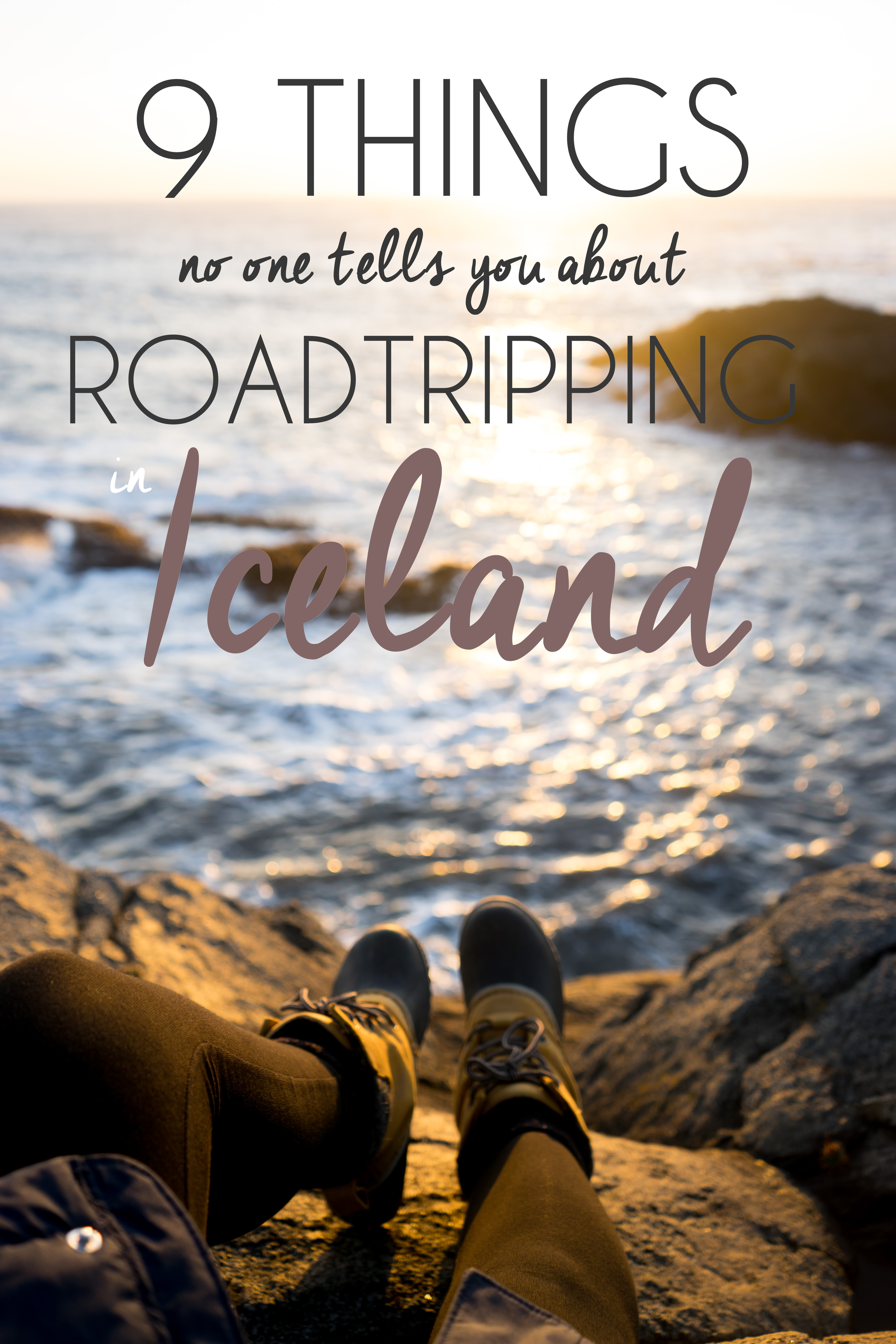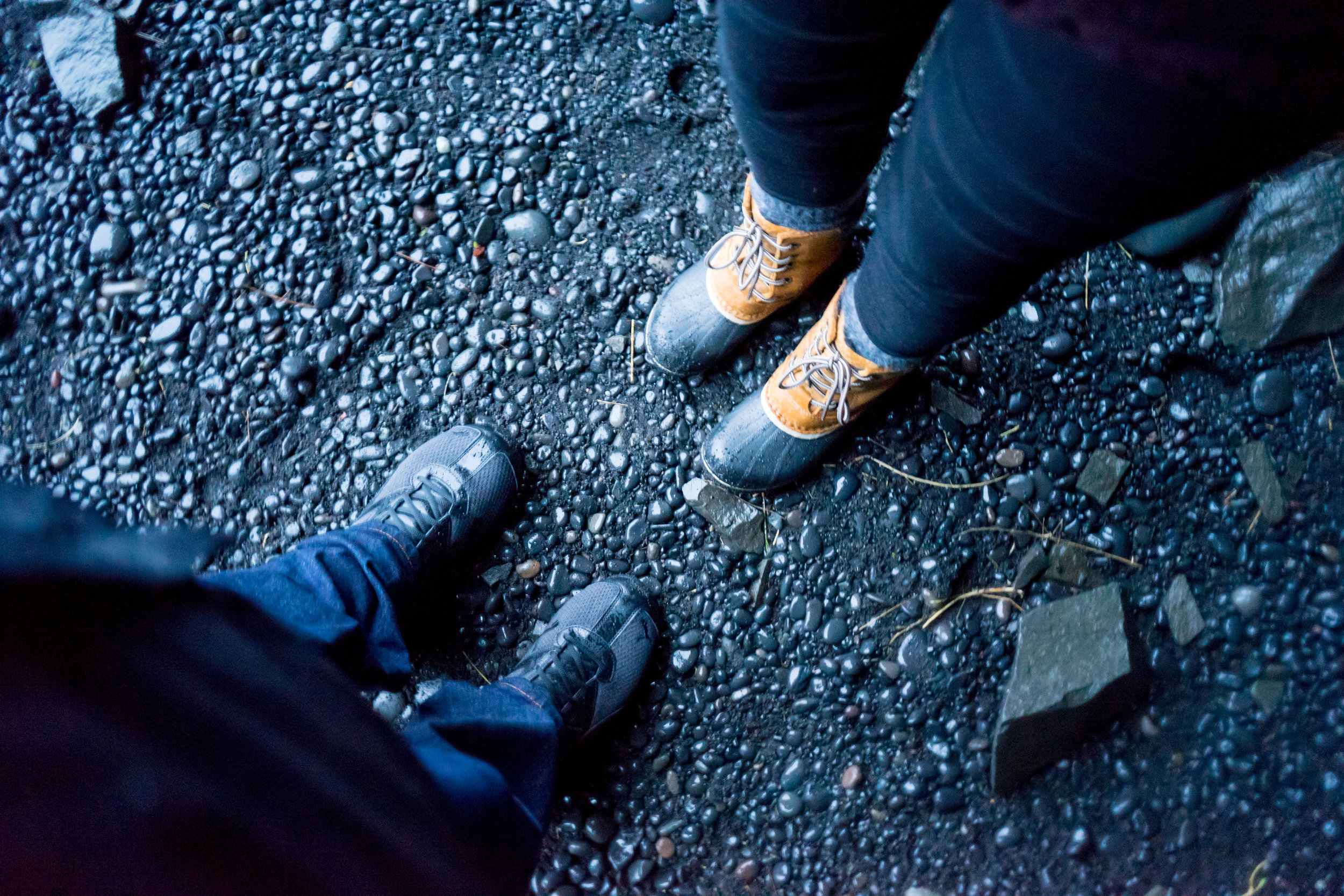Travel à la Mode: 9 Things No One Tells You About Roadtripping in Iceland
Getting to visit Iceland is a dream. Getting to visit twice, and have the opportunity to roadtrip around the entirety of the Ring Road was the trip of a lifetime, but there were a few things I wish I had known ahead of time. I am a planner and love planning vacations, so lots of research and thought goes into every trip we take. Surprisingly, through all my research, no one had said anything about the following nine things. If we had known these, it would have taken our trip to another level. They added unnecessary stress and conflict that could have been easily avoided. If you are planning to take a trip to the Land of Fire and Ice anytime soon, make sure you read on before you go.
1. Watch Out for Parking Tickets
While checking into our first hotel on the first day, we got a parking ticket. Check-in takes maybe 15 minutes at most, so the parking attendants are definitely on top of things in Reykjavik. There are different parking zones with different prices throughout the city (P-Zone 1-4), indicated by signage, and you pay at a meter or a ticket machine. It's rather inexpensive, and there is free parking at night. Some rental cars are "eco-friendly" and you can get free parking up to 90 minutes due to that. If that's the case, you will have a sticker on your car to indicate that.
In Akureyri, the second largest city, the parking situation is a bit different. You will need to go to a gas station, hotel, or bank to get a clock-card. How it works is you set the current time on the clock and put it on your dash, so they can see what time you parked. The parking areas have time limits, so if you have exceeded the allotted time you might get a ticket.
So what do you do if you get a parking ticket? First off, the sooner you pay it off the cheaper it will be. If you don't pay it, then they will contact your rental car company, who will figure out it was you driving the car and will charge you for it, and will probably add a "processing fee" as well. You can pay off the tickets at any bank, and you will have to pay with cash.
2. Watch Out for Speed Cameras
Hand-in-hand with parking tickets are speeding tickets. The maximum speed on most paved roads outside of towns, including Ring Road, is 90 km/hr, and some areas 80 km/hr. There are plenty of signs around indicating the speed, so you shouldn't ever worry about that. There aren't a lot of police in this country, but there are speed cameras. Thankfully, there are signs that alert you one is coming up - an example is shown below. Speeding tickets are costly, and they will track you down, similarly to parking tickets. Depending on how fast you are going and in what speed zone, you can be expected to pay anywhere from $50 - $1500 (USD) for one ticket.
What happens if you do get one? If you are given one by police, you can pay off speeding tickets the same way you do parking tickets. Otherwise, they will contact the rental company who will contact or charge you. Locals tend to speed anyway, but if you want to avoid a ticket just stick to the speed limits.
3. Do Not Use the "Full Tank" Option at Gas Stations
At gas stations in Iceland, you have to prepay every time - and by that I mean you choose what amount you will pay before pumping gas. As some gas stations, there is a "full tank option" that you can press if you are low on gas and know you need to fill up all the way. We found out the hard way about that this will put a large hold on your credit card - way more than we spent. They don't know how big your gas tank is, so they go the conservative route and hold the maximum they can. They don't actually charge this amount, but keep in mind it'll be held if you use this option.
4. Book an AirBnb with a Washer/Dryer
Halfway through our trip we made sure we got an AirBnb with laundry capabilities. With all the snow and rain and wind and mud and unexpected weather, your clothes need it. It was so great to throw a few loads in and have clean clothes to start fresh with again. Of course, you can have a hotel do this as well, but there may be a cost to do so.
5. Bring an Adapter AND Converter
It shouldn't be a surprise that you will likely need an adapter (type F) to visit Iceland, but it never occurred to me to bring along a voltage converter as well. The standard voltage in Iceland is 230 V and the frequency is 50 Hz, whereas in the US the standard voltage is 120 V and the frequency 60 Hz. So if you bring an adapter and not a converter, you will be able to plug your electronic applicances into the wall, but they will not work. Worse, it could seriously damage your appliances.
If you are not sure if your appliance will or won't work, you can typically check on the label for what voltage and frequency it works with. If it has "100-240V" and "50/60 Hz", it will work in all countries in the world. This is true for most cameras, laptops, cell phones, and their chargers. Your curler, flat iron, or electric shaver? Not so much. Some good converters to get for your trips are this one and this one.
Quick Tip: If you are in a country where you are not sure what the local voltage is, an easy way to check without the internet is to see what lightbulbs they are using.
6. There is Sulfur in the Water in Reykjavik
One thing Iceland is known for is their volcanic landscape and nature. And what comes along with volcanic activity? Sulfur. Almost all of the hot water near Reykjavik and a bit near Akureyri will smell and taste a bit like sulfur. The sulfur level is not harmful and the water is still very potable, but the smell might be off-putting to some people. The hot water and cold water in Reykjavik come from two different sources; the hot water from deep in the ground, and the cold water straight from the natural springs around the country, so it is pure and naturally filtered. We got some water bottles at our favorite grocery store (Bónus) in Reykjavik, and were able to refill them with cold tap water throughout the rest of the trip, which tasted amazing!
7. Check Hotels for a Price Match
When we went on our second trip, we did a lot of our hotel booking through a third party (like hotels.com or booking.com) or we did AirBnbs. When we got to Iceland, I noticed almost accidentally that our first hotel had dropped half in price for the nights we were staying there! Winter is definitely not tourist season, so they weren't able to fill all the rooms, so they drop the prices. If you booked well ahead of time, you might get stuck with a pricier room. We reached out and was able to get our hotels price matched because it was so much lower everywhere! It never hurts to ask!
8. Bring flip flops!
Flip flops in Iceland? Why, yes! When you are tip-toeing across ice and frozen concrete to submerge yourself in the warm hot springs, your feet will thank me. I actually found some abandoned flip flops by the side of a natural hot spring we went to, Seljavallalaug. I was so grateful because we were climbing over snow banks to get into the pool! The photo above was taken at this swimming pool.
9. Restaurants close early! Also split meals
During the winter is not the height of tourism in Iceland, so a lot of restaurants will close early or not even open during the winter because there isn't the demand for it. In more remote areas, there will probably not be restaurants or gas stations open later than 8 or 9pm. They say to plan your trip around gas stations, but I also say plan your trip around your meals and knowing a restaurant will be open (I would suggest calling to be sure!). Food is also a lot more expensive on this remote island in the Atlantic (imagine that), so Nate and I would split a lot of our meals to keep the costs down. You can easily and unknowingly spend $50 a person just for lunch. Most places didn't mind that we split!















